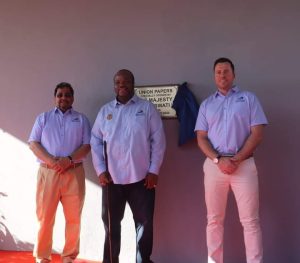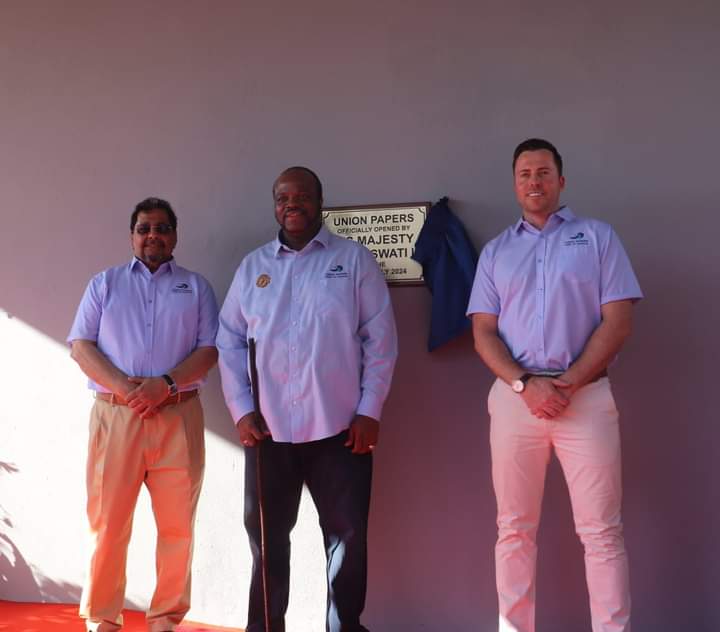By Delisa Thwala
Eswatini Paper Mills has revealed that in the next 12 months, they will unveil phase two of their project which is set to set them back at E200 million.
This investment will see over 223 emaSwati being hired and deployed at the Nazeet Industrial Park in Matsapha.
The announcement comes shortly after the park hosted His Majesty King Mswati III for a late lunch and tour on July 10, 2024.
There are already about 100 jobs on the cards at the recently reopened Eswatini Paper Mills in Matsapha.
This was revealed by the Minister of Commerce, Industry and Trade Manqoba the company was closed on August 7, 2009, and 223 employees lost their jobs.
ALSO READ: HIS MAJESTY WITNESSES SEVENTH INAUGURATION
Since last year, YGA Papers has been reportedly renovating Eswatini Paper Mills. The miss will be in the business of processing kraft paper from wastepaper.
The reopening of the company has been announced to come in two phases, Phase 1 being the manufacturing of kraft paper with E70 million committed.
Phase 2 will include the production of toilet paper taking the investment up to E200 million.
The company will be producing for the Eswatini and Southern African markets.

Eswatini Paper Mills Director Kareem Ashraf said people are moving away from plastic to more natural fibre which will increase the demand for boxes and wood products.
Eswatini Paper Mills was established in 1986 to produce and supply 1-ply tissue paper to the South African market. The company’s two initial tissue paper machines were later increased to four.
In 1990 Eswatini Paper Mills installed a kraft paper machine to produce fluting and test liner paper for the South African corrugated box converting industry.
ALSO READ: Eswatini is open for business as His Majesty tours African Alliance projects
A second kraft paper machine (KPM2), which produced only test liner paper, was installed in 1995 with financial assistance from IFC.
The tissue paper machines were sold in 1998 following the Sharma family’s decision to withdraw from the tissue paper business in South Africa and to concentrate instead on producing fluting and test liner paper.
Nampak, a large South African paper producer, bought the tissue paper machines and entered into an operating agreement with Eswatini Paper Mills.
The strategy is to create critical mass and optimize the production and supply of fluting and liner paper to the South African market.
The project involves the upgrading of KPM2 to increase production capacity and to equip the machine to produce fluting paper and will enable the sponsor to produce all fluting paper at Paper Mills and all test liner paper at Unicell Paper Mills, with resultant economies of scale.
The project has generated foreign currency and secured about 500 jobs in the country with high unemployment.


